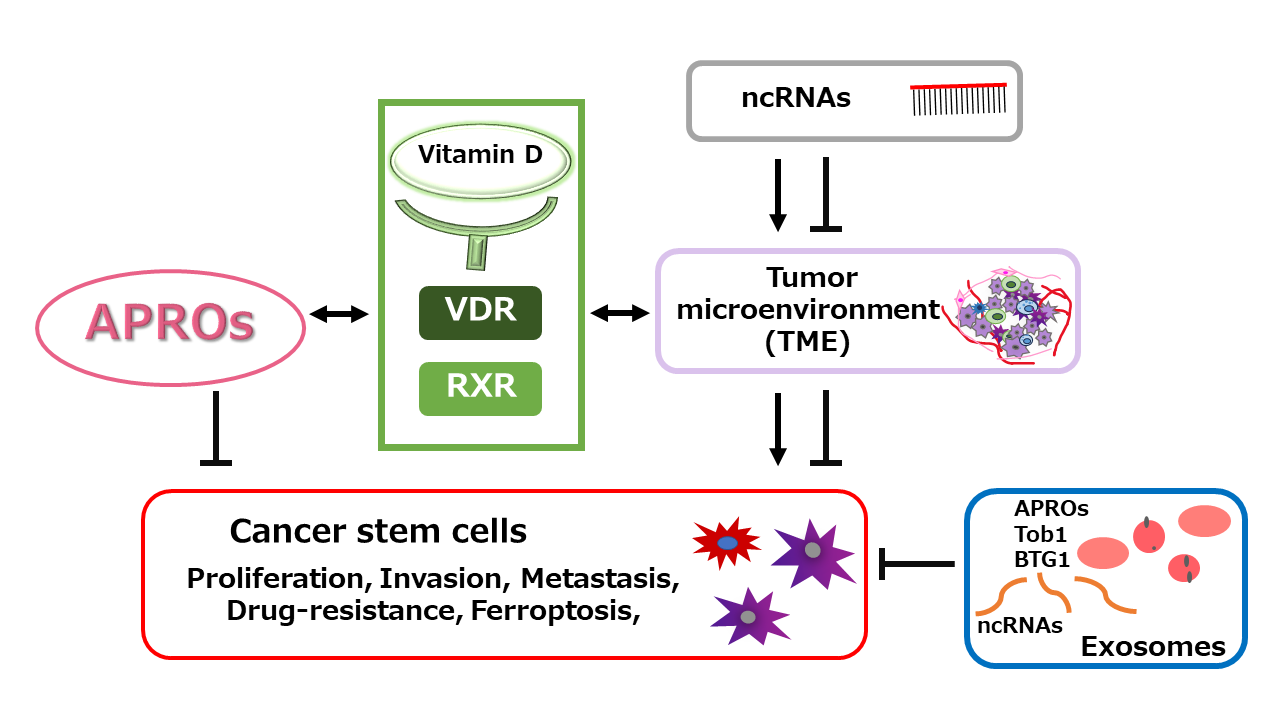 Open Access
Open Access
REVIEW
Promising roles of vitamin D receptor and APRO family proteins for the development of cancer stem cells targeted malignant tumor therapy
Department of Food Science and Nutrition, Nara Women’s University, Kita-Uoya Nishimachi, Nara, 630-8506, Japan
* Corresponding Author: SATORU MATSUDA. Email: -wu.ac.jp
Oncology Research 2025, 33(5), 1007-1017. https://doi.org/10.32604/or.2025.059657
Received 14 October 2024; Accepted 13 January 2025; Issue published 18 April 2025
Abstract
Malignant tumors are heterogeneous diseases characterized by uncontrolled cell proliferation, invasion, metastasis, and/or recurrence of their malignancies. In particular, cancer stem cells (CSCs) within these tumors might be responsible for the property of invasiveness and/or therapies-resistance. CSCs are a self-renewing, awfully tumorigenic subpopulation of cancer cells, which are notorious for strong chemoresistance and are frequently responsible the aggravated invasion, metastasis, and/or recurrence. Developing targeting therapies against CSCs, therefore, may be deliberated a more encouraging mission for the greater cancer therapy. Innovation for a more potent anti-CSC treatment has been required as soon as possible. Interestingly, vitamin D could modulate the inflammatory condition of the tumor microenvironment (TME) by successfully affecting CSCs, which has an imperative role in determining the malignant phenotype of CSCs. In addition, vitamin D may also contribute to the regulation of the malignant behaviors of CSCs. Consistently, vitamin D could have potential applications for the significant inhibition of several tumor growths within various cancer therapies. The biological significance of vitamin D for CSCs regulation may be involved in the function of APRO family proteins. Therefore, vitamin D could be one of the innovative therapeutic modalities for the development of novel CSCs related tumor therapies.Graphic Abstract

Keywords
Cite This Article
 Copyright © 2025 The Author(s). Published by Tech Science Press.
Copyright © 2025 The Author(s). Published by Tech Science Press.This work is licensed under a Creative Commons Attribution 4.0 International License , which permits unrestricted use, distribution, and reproduction in any medium, provided the original work is properly cited.


 Submit a Paper
Submit a Paper Propose a Special lssue
Propose a Special lssue View Full Text
View Full Text Download PDF
Download PDF Downloads
Downloads
 Citation Tools
Citation Tools